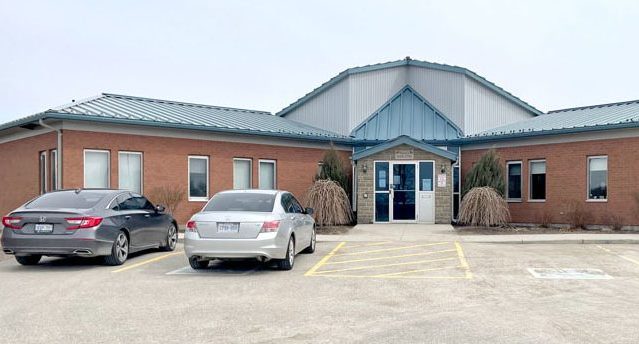MAPLETON – Inflationary pressures, rising claim costs for municipalities across the province and a “hard market” for insurance are among the factors driving the township’s insurance premium up by just over 21 per cent for 2023.
The increase will cost local taxpayers $69,297, as the township’s premium rises from $319,680 to $388,997.
“We are currently on, well we hope, the tail end of perhaps one of the longer hard markets that the insurance industry has seen in a number of decades,” Colin Smith, regional manager for Intact Public Entities, told Mapleton council on April 11.
“A hard insurance market is a time where the amount of coverage available, the capacity of the insurers, is reduced and that in turn increases the prices.
“Hard markets are typically brought on by claims. Claims drive premiums, ultimately,” he explained.
The pressure on premiums isn’t specific to Mapleton, Smith said – “It’s more on a broad scale across the province.
“Your neighbouring municipalities, all municipalities over the last couple of years during this hard market, have felt to some degree these increases in insurance rates.
“So, it is not something that is just on the Township of Mapleton.
“For 2023, the insurance rates are up 21% for the Township of Mapleton over the expiring premium,” said Smith, adding “there was a combination of factors that have driven those rate increases.”
Smith continued, “Inflation for 2023 is another big one, too. When we’re looking at the Consumer Price Index coming into 2021 and the last quarter of ‘22, we’re upwards of seven per cent.
“And then on building construction for replacement costs as well, those were inflated even more so. And all that is factored into insurance rates.”
He noted “municipalities throughout the province have been the unfortunate subject of some pretty substantial claims.
“And all of that is reviewed by the insurers that look after these programs too. So, it all plays into the rates across the province.”
In order to attain lower, or even stable, premiums, Smith said it’s important to take a broad approach.
“Risk needs to be looked at from a wholistic perspective. So, it’s reducing your risk, reducing the frequency and severity of claims,” Smith told council.
“Preventing those claims will ultimately keep your insurance rates stable, all things being equal.”
He added, “So we’re getting back to, hopefully, a time where a soft market is going to take hold again and rates will become a little bit more stable. Are they going to go down? Perhaps not from the level they’re at right now.
“But there was a period of time in the last soft market where there was a few years of slight … decreases … like one or two per cent below your expiring rates.
“So I’m not not ruling that out. But chances are, rates across the province are going to be pretty steady.”
Reducing deductible levels is one means of limiting premiums, Smith pointed out.
“We can look at those types of coverages where you may not have frequent claims and see what types of premium credits go along with those increased deductibles,” he explained.
“Also, obviously municipalities across the province are asking questions … topics like pooling have come up, reciprocals, that type of stuff.
“So we’re also providing information on that where we can and where it might be a good fit for municipalities.”
Councillor Marlene Ottens said, “The way you describe it, when other municipalities have claims everybody’s premiums go up.
“Whereas in, I guess, our world, if somebody else has accidents, my premiums don’t go up. So why is that different at the municipal level? …
“Why do we all have to pay for somebody else’s misfortune, which is unfortunate, but that’s the point of insurance, right?”
Smith said factors such as overall claims and fraudulent claims also impact individual insureds in the same way they do municipalities.
“Fraud is definitely a big thing on the auto side – faking accidents, injuries, those types of things, or inflating injuries,” he explained.
“So those do drive our rates up. Even though you may not have had an accident, your insurance rates probably went up over the last four years on your auto policy as well.”
He added, “But to answer your question directly, yes, if other municipalities have claims, it can affect the rest of the industry and other municipalities as well.
“Just as, if Mapleton had a large claim, in a sense your neighbours would be helping to pay for that.”
“Obviously a lot of the rising costs in insurance are because of increasing damage payouts,” observed Ottens.
“It sounds like they’ve been doubling and tripling even within 10 years. So I know that you’ve been lobbying at the provincial level, I believe for the joint and several liability.
“But what about lobbying at the legal and judicial level to maybe put a cap on these payouts? Or more reasonable damage awards? Has that ever been done by the industry?”
Smith said the burden that joint and several liability principals place on municipalities is something the insurance industry has looked at.
“What we’re here to do is help provide some of the background, as opposed to lobbying ourselves; assisting some of the associations or the municipalities that may have a risk management department, etc., that are more involved in the claim side of things, that might be going to that judiciary level and lobbying them,” Smith replied.
While councillors may not like the increase, “that’s what we’re stuck with,” noted Mayor Gregg Davidson.
“Everyone is stuck with it, not just Mapleton, but it’s really across the board. And we certainly understand that.”
Council approved the Intact delegation’s report for information.




